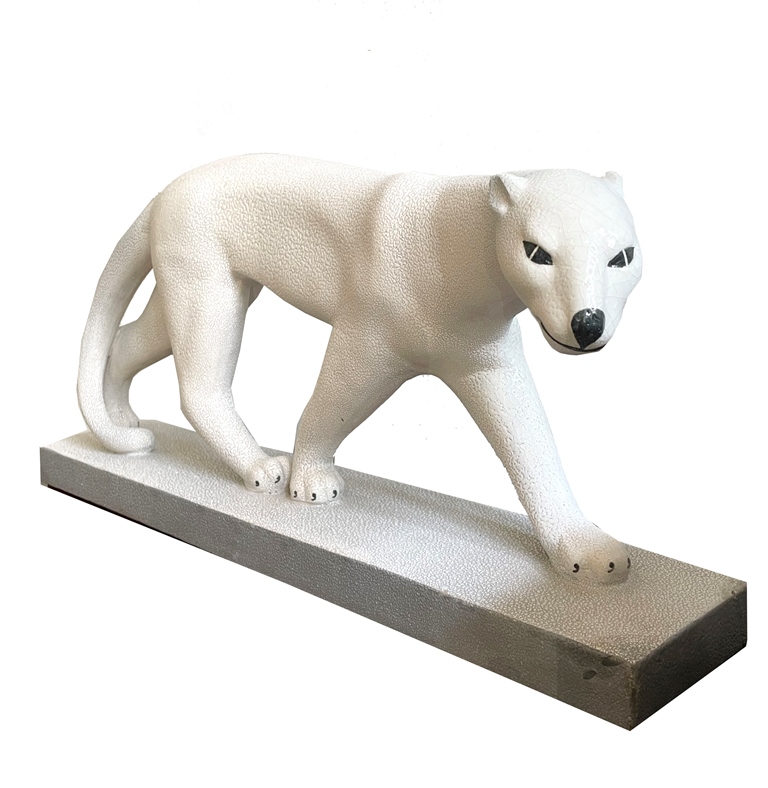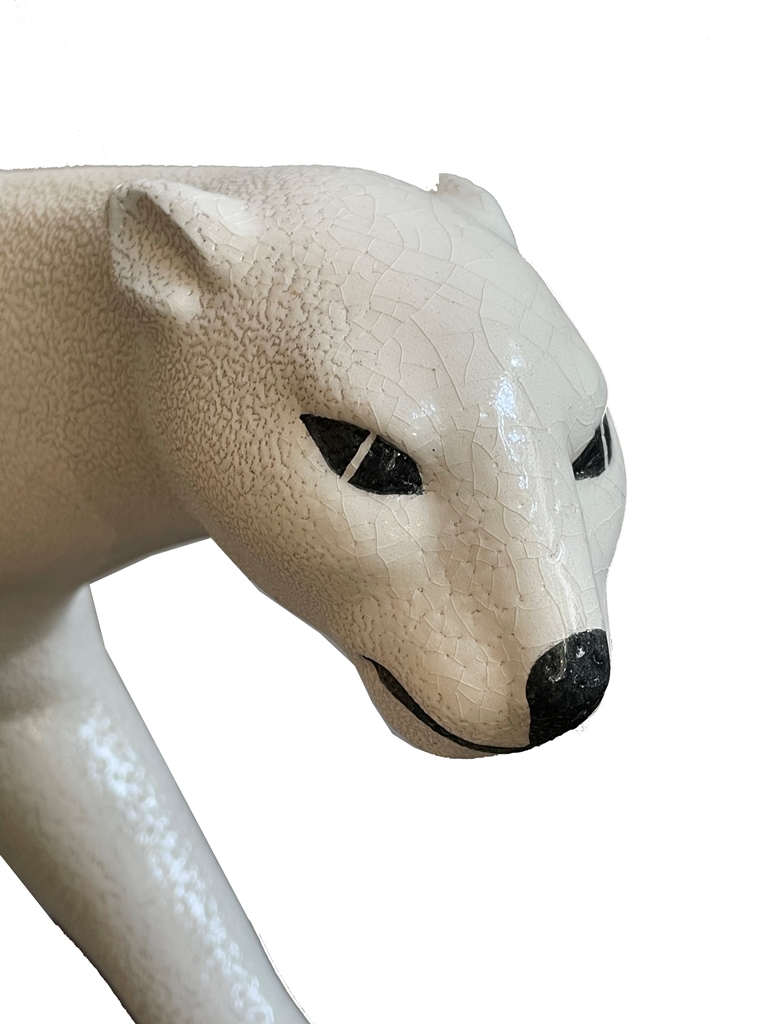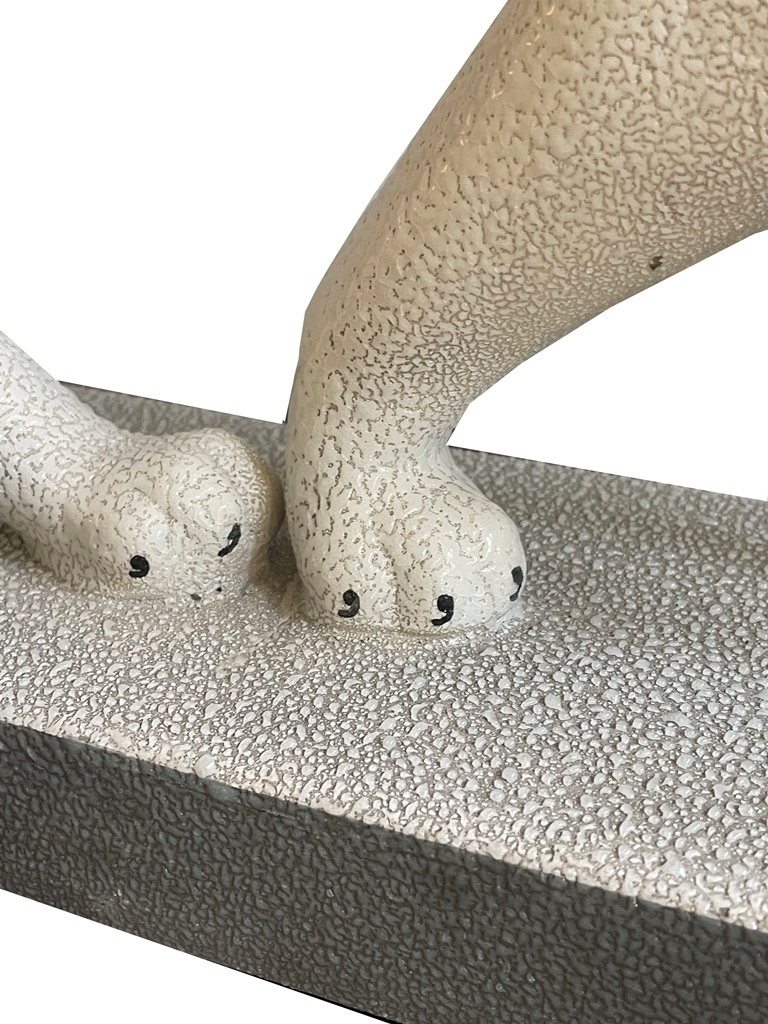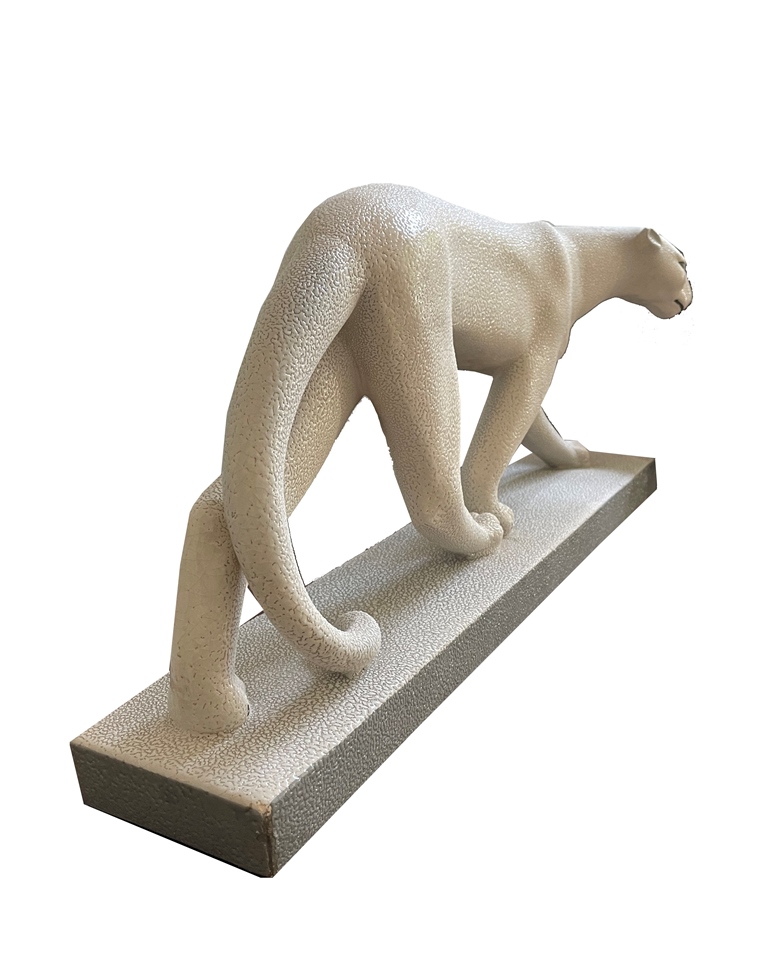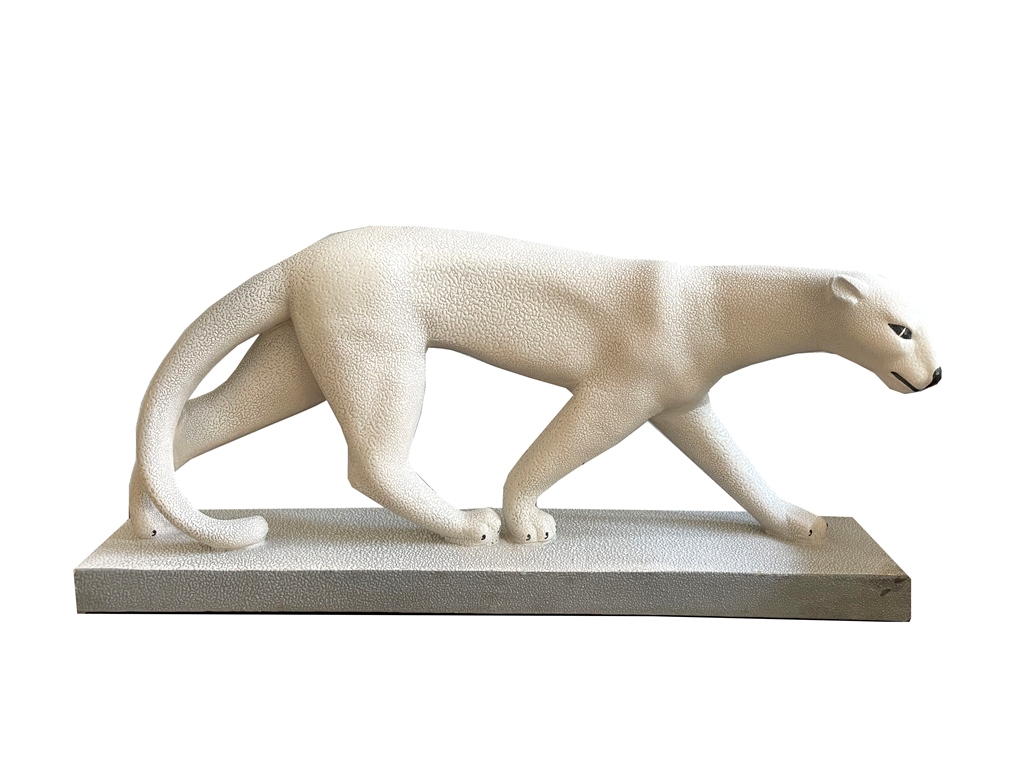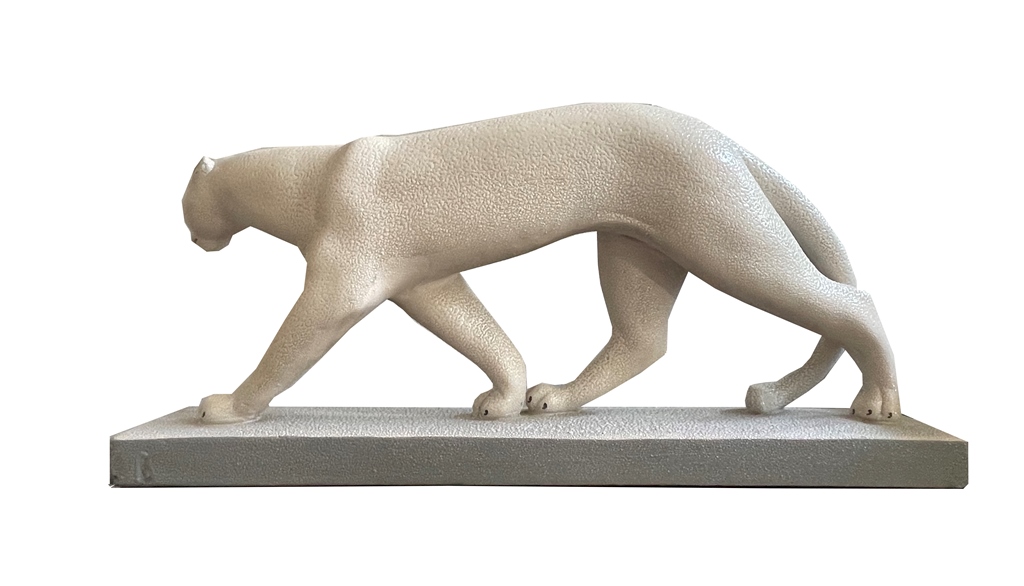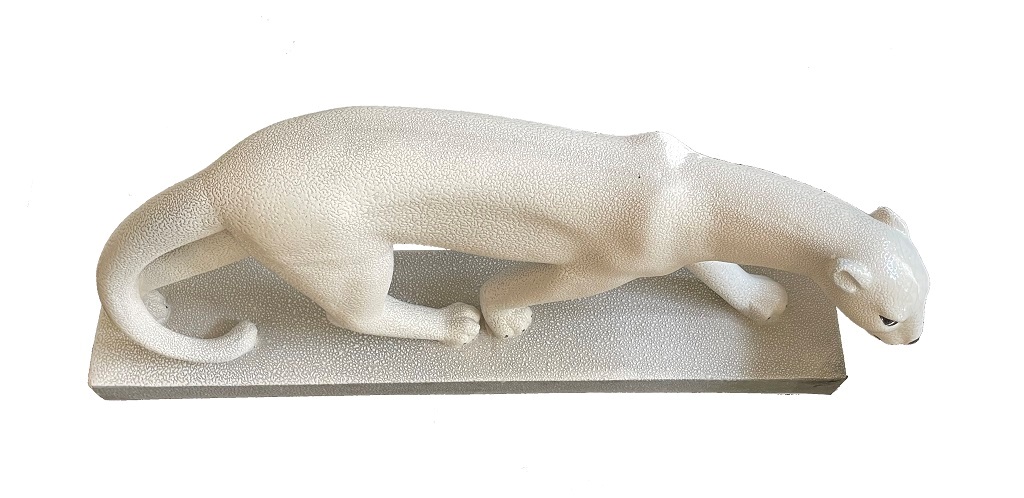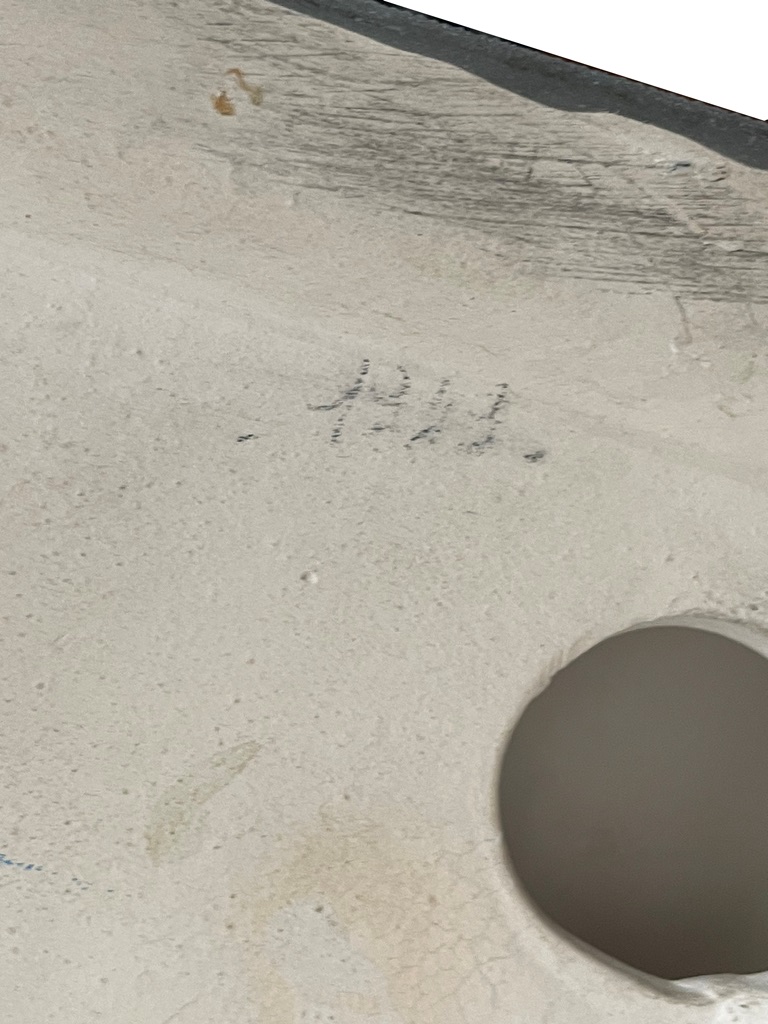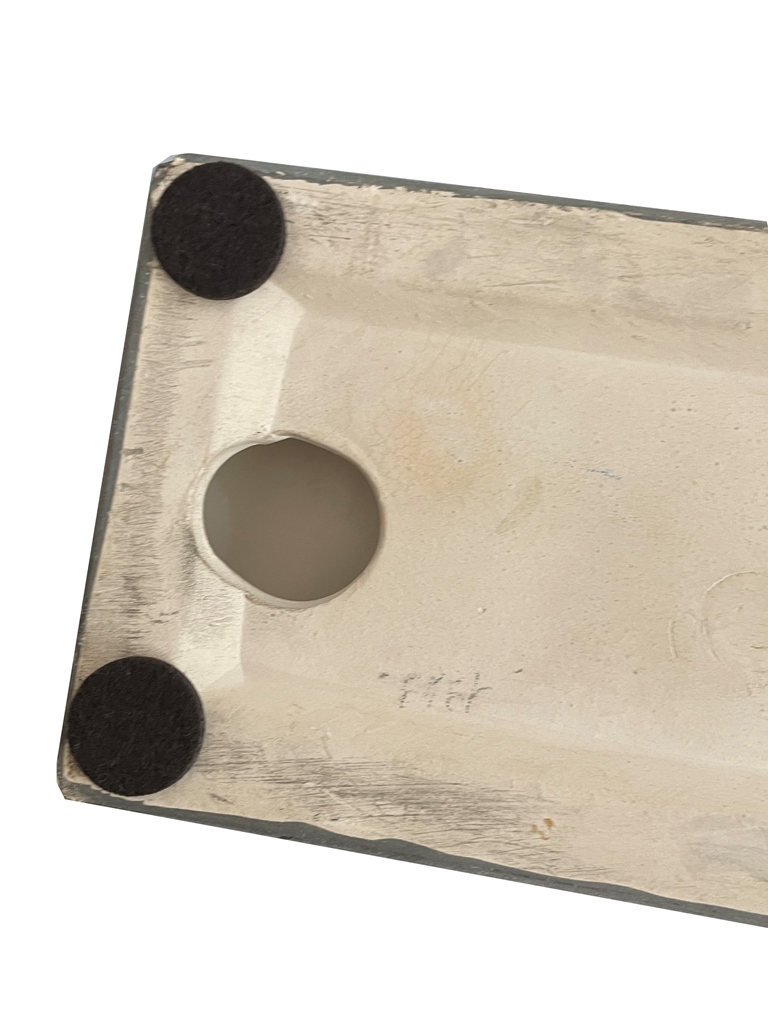White Art Deco panther, Fayence
Nr. 2311 | 1.800,-- Euro
White Sculpture of a female panther
France, dated underneath: “1929”
Ivory colored ceramic on light gray ceramic base
Structure with craquelé and slightly glittering dotted surface texture.
Very elegant and rare specimen – eyes and paws burned in black enamel.
Height: 26.5 cm
Width: 55 cm | Depth: 11 cm
Price: 1.800,– €
( Including 19% VAT that is deductible )
White Sculpture of a female panther
Fayence production in the Art Deco era was a popular ceramic technique in Europe during the 1920s and 1930s. The Fayence technique originated in the Italian city of Faenza, where it was invented in the 15th century.
In the Art Deco style, Fayences were highly valued for their decorative features. To produce Fayences, a mixture of clay, quartz sand, and feldspar is used, which is shaped and then fired. Afterwards, the ceramic objects are glazed and fired again to obtain a durable, glossy surface.
The decoration of Fayences is achieved through painting or applying special decorative transfer images onto the object. The patterns and colors used for decorating Fayences are often very stylized and geometric, reflecting the aesthetics of the Art Deco style.
Fayences from the Art Deco era were produced in many European countries, including Germany, France, Italy, and Spain. In Germany, in particular, the Villeroy & Boch ceramics factory was known for its Art Deco Fayences.
Another beautiful Panther is this Striding panther.
A nice performance for the panther could be a nice desk.
Art Deco at RSA Wiesbaden
You can find more Art Deco cabinets, Art Deco chests of drawers and Art Deco lamps in my shop in Wiesbaden. Regine Schmitz-Avila – your specialist for French Art Deco furniture and art objects from around 1930.
